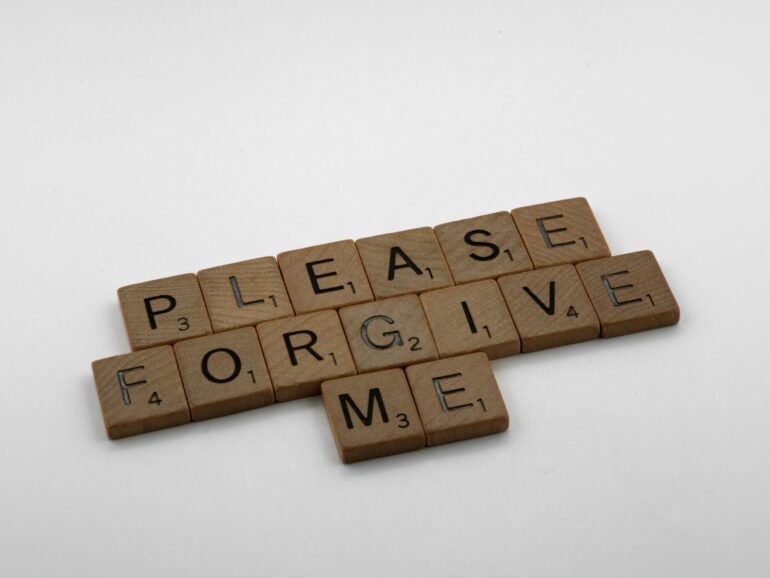
(This is a talk that I gave to our staff at Beulah Alliance Church, elaborating on our Healthy leadership virtue)
You’ve probably heard the statement, “Unforgiveness is like drinking poison and expecting the other person to die,” right?
For most of us, unforgiveness is perceived as a black-and-white issue. You’ve either forgiven someone or you haven’t. You’ve either said, “I forgive you,” or perhaps, in not so many words, “Screw you.”
But unforgiveness is much more nuanced than saying a few words.
Consider how The Merriam-Webster Dictionary defines unforgiving,
- “Unwilling or unable to forgive.”
- “Having or making no allowance for error or weakness.”
And here’s how The Oxford Dictionary defines unforgiving,
- (of a person) “Unwilling to forgive other people when they have done something wrong.”
- (of a place, situation, etc.) “Unpleasant and causing difficulties for people.”
Those definitions are insightful because I think all of us have—at some point in our lives—said words that we really didn’t mean. Like when someone asks you, “How are you doing?” How many of you have ever said, “Fine or okay,” but you really weren’t doing fine or okay?
I know I have.
And it wasn’t because I wanted to lie…it’s just because I really didn’t want to get into it at that point…or with that person.
Or, regarding the Florida Panthers beating the Edmonton Oilers, I wonder how many Oilers fans said the nice Canadian thing to speak to someone else, “There’s always next year!” Or, “It’s just hockey.”
When in fact, deep down inside, you were thinking, “I HATE THE PANTHERS. Why in the world does a place like Florida have, not just one hockey team, but two?! I wish Bobrovsky would just get sick or retire!”
So in the same way, after being hurt or mistreated by someone, how many of you have ever said or thought to yourself that you had forgiven them, when in reality—if really pressed, and if you looked really deep down inside—you were actually holding a grudge against them?
“Yes, I forgive you…but I NEVER WANT TO SEE YOUR UGLY FACE AGAIN.”
“Yes, I forgive you…But YOU WILL NEVER GET ANOTHER CHANCE.”
“Yes, I forgive you…But I WILL NEVER PRAY FOR YOU AGAIN.”
Anyone?
I know I have.
But forgiving someone else isn’t just saying the words; it’s actually when your feelings toward them shift from anger to an emotion that feels more neutral. From criticism and contempt to graciously giving them the benefit of the doubt when they make a mistake.
And as disciples of Jesus, forgiving someone else actually goes one more step. It goes from cursing to blessing.
This is why Jesus said, “But I say to you who listen: Love your enemies, do what is good to those who hate you, bless those who curse you, pray for those who mistreat you. If anyone hits you on the cheek, offer the other also. And if anyone takes away your coat, don’t hold back your shirt either.” (Luke 6:27-29 CSB)
As disciples of Jesus, we aren’t called to forgive only once, nor seven times, but seventy-seven times or seventy times seven times (Matthew 18:22).
Now the reason isn’t just so that we can be known as friendly people…or because of the importance of unity for our witness, or because unforgiveness is like drinking poison and expecting the other person to die.
No, Jesus actually gives us a deeper reason for forgiveness after he finishes teaching his disciples the Lord’s prayer, where he instructs us to pray, “forgive us our debts as we also have forgiven our debtors”:
- “For if you forgive others their offenses, your heavenly Father will forgive you as well. But if you don’t forgive others, your Father will not forgive your offenses. (Matthew 6:14-15 CSB)
🫳🏼🎤 (that’s a mic drop emoji if you didn’t pick up on it) 😂😁
So back to being HEALTHY.
At Beulah Alliance Church, here’s how our Healthy leadership virtue is expressed: “We pray for and with one another, give each other the benefit of the doubt, and refuse to hold grudges because as spiritually, emotionally, and relationally healthy Christ followers, we are together on mission.”
Team, we can’t expect to be on mission with one another if we are still holding grudges against people we have supposedly “forgiven” with our words.
We can’t expect to be on mission together if we aren’t willing to give one another the benefit of the doubt.
And we can’t expect to be on mission together if we aren’t willing to pray for one another (Because if you’ve ever prayed for someone who hurt you, you know how hard that is).
So, today, do you have unforgiveness lurking in your heart?
- Are there grudges that you’re holding onto that you need to release to God?
- Is there someone that you need to start blessing instead of cursing?
- Someone that you can pray for right now, instead of ignoring?
Let’s start our small group time together in silent prayer around those three areas. Then I’ll let you know when we can begin discussing these questions together.
Discussion Questions:
- Can you share a story when you’ve been on the other side? How did it feel when someone said they had forgiven you, but you still felt a cold shoulder from them? When they said that they had forgiven you, but you felt like they were still holding a grudge against you? How did you know? And then, what did you do (if anything)?
- As disciples of Jesus, what do you think we are called to do if we notice unforgiveness between two other people?
- What are some practical ways to release grudges against others?



